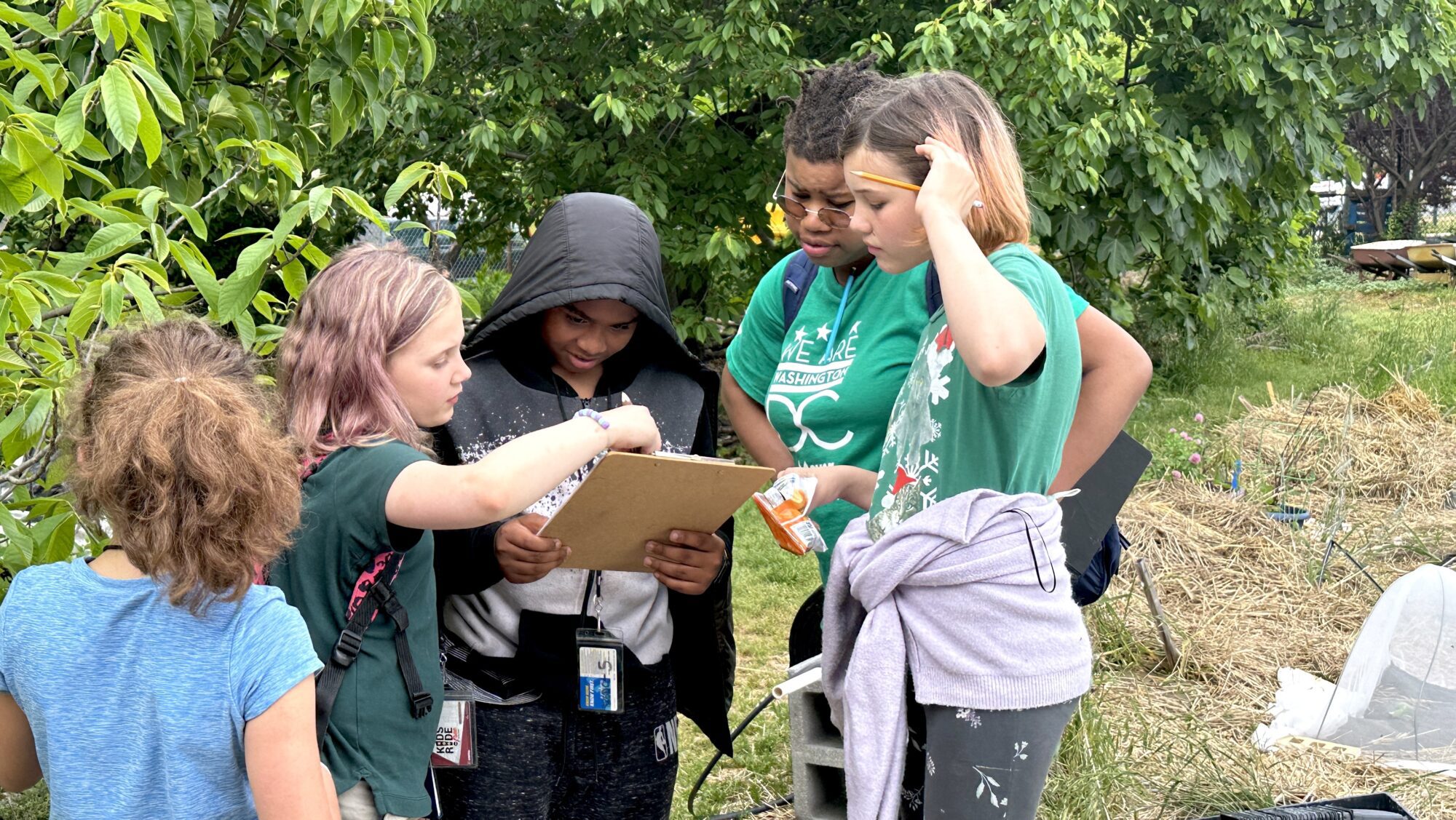We brought 826DC students to Common Good City Farm as part of an un-bee-lievably fun pollinator poetry project!
How This Came to Bee
Writers from 826DC’s After-School Writing Lab were working on one last project before the end of the school year: pollinator poetry and prose, aka writing about or inspired by pollinators like bees, flies, butterflies, moths, and even bats.
“This was an opportunity to put everything the students have learned about sensory details, character development, and worldbuilding into practice,” said Tyler Grigsby, 826DC’s Community Programs Manager. “It was also one last cool project to keep them engaged with their writing even as end-of-school-year restlessness was kicking in.”
To help the group get inspired, we headed over to Common Good City Farm, an urban farm and fellow local nonprofit! They have a farmer’s market and host workshops about plants, pollinators, regenerative agriculture, and more. It was the perfect place for our writers to learn more about the subject and to practice using real-world research skills.

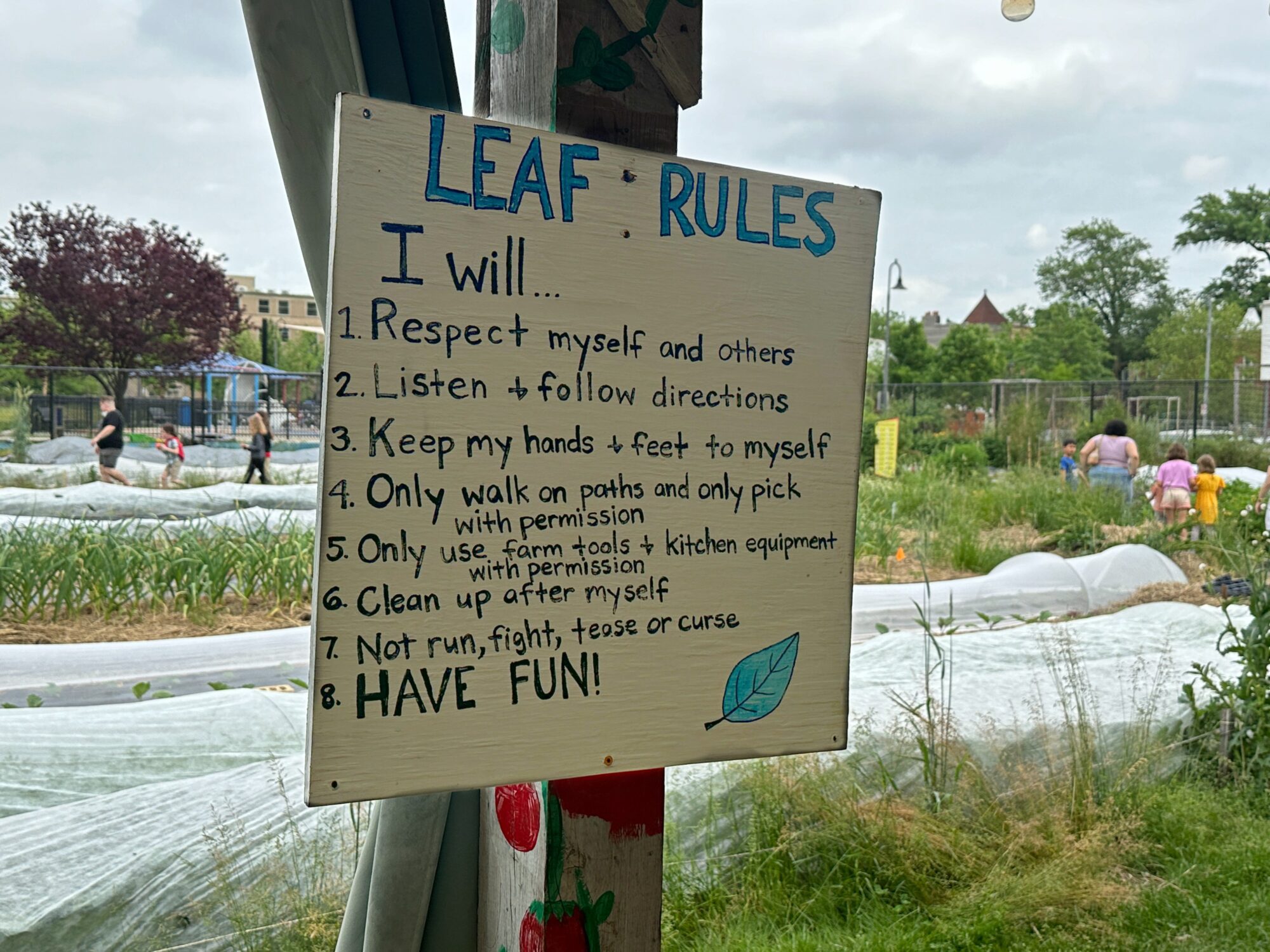
Spreading Their Wings
The cohort split up into small groups for a pollinator scavenger hunt. This helped the students familiarize themselves with the farm and understand what to look for.
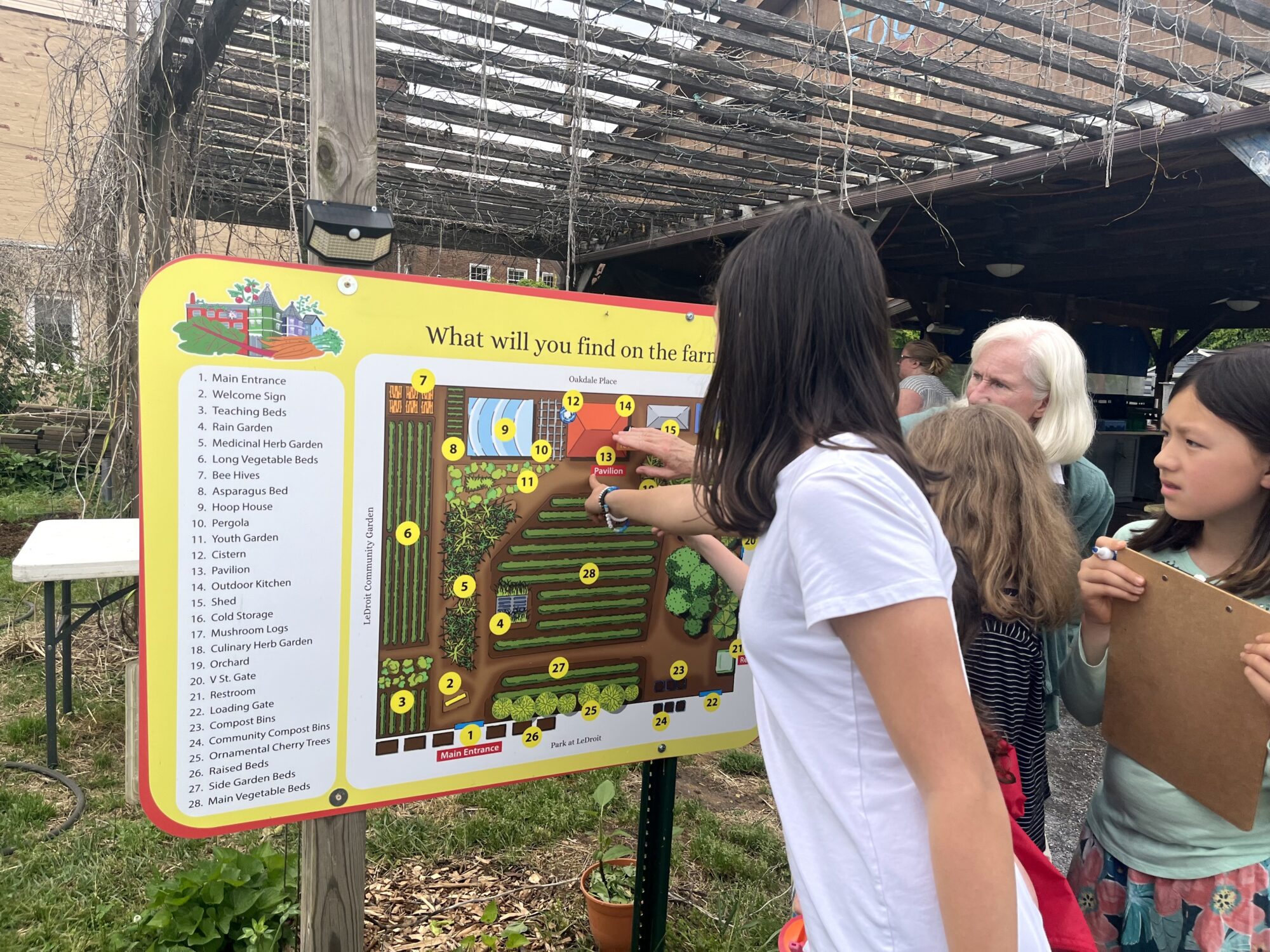
Warmed up, it was then time to focus on a specific pollinator and make a plan.
The students each picked a pollinator species to write about. Then we had them make a list of their pollinator’s traits: at least three external traits (i.e. what they looked like, how they moved, what others noticed about them) and guesses for at least three internal traits (i.e. their personality, mood, and likes/dislikes).
Next, we captured sensory details. What could the young writers hear, see, smell, or taste at the farm? Capturing those aspects of their experience would help enrich the students’ writing. Later on, when they consulted their notes, having those details would also help them remember better.
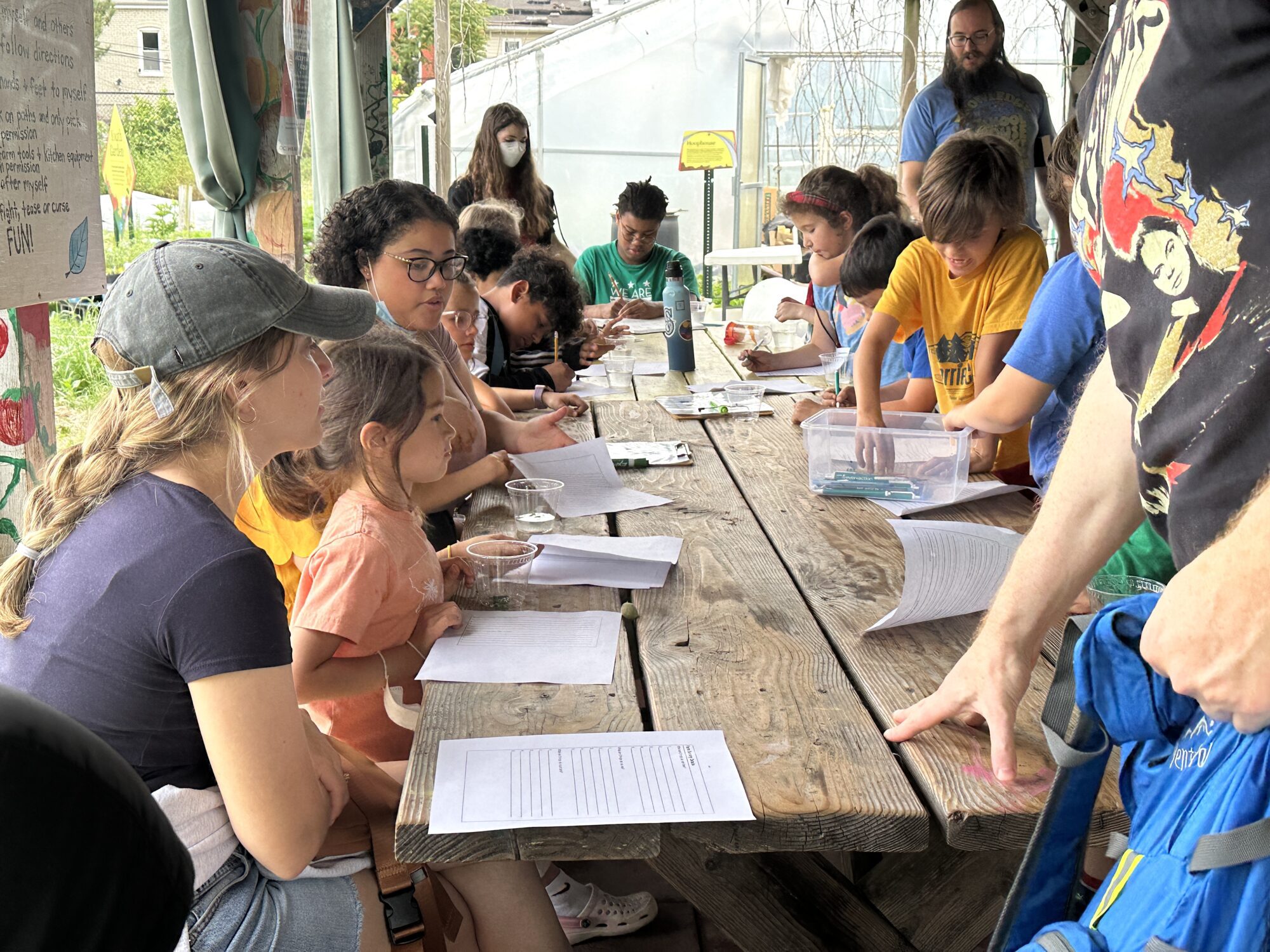
Blossoming Writers
826DC’s After-School Writing Lab left the farm excited and abuzz with ideas. They went on to write short stories featuring mythical pollinators and poems inspired by our everyday insect heroes.
“It’s important for writers of any age to seek inspiration in the world around them,” says Tyler Grigsby. “I want to inspire my students to stay curious and open to new experiences. I hope that they can see how thinking outside the box can bring new perspectives into their writing.”
It was also very fun.
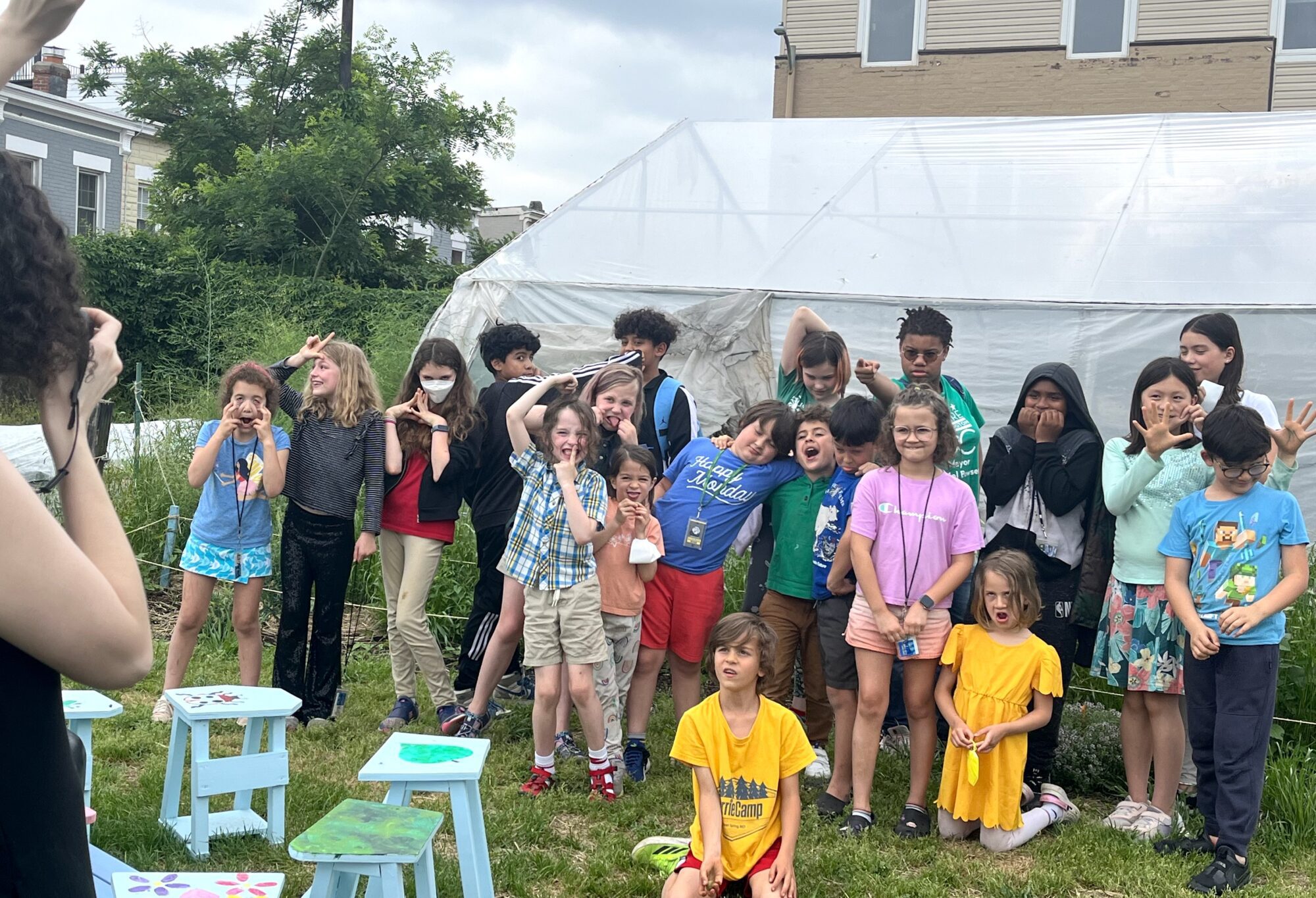
Experiences like these help young people become better observers, noticers, and inferrers, which in turn helps them become stronger writers.
If you’d like to help more 826DC students enjoy novel writing adventures like this one, there are plenty of ways to get involved! Consider becoming an 826DC volunteer or donating to sustain what we do.
